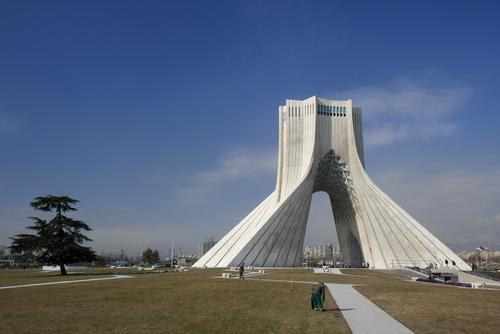Foreign Aid: a Perfect Gift for Kleptocrats.

The United States spends billions of dollars a year on foreign aid that often keeps autocrats, kleptocrats and dictators in power. Of course, when the US or any rich, developed country allocates foreign aid, their aim is not necessarily to keep bad policies in place. Not surprisingly, some of the places most badly in need of aid are also the most poorly governed. What is surprising, however, is that the most poorly governed places are also the ones with the most stable leaders. Why is that? The answer to this puzzle, according to Bruce Beuno de Mesquita, New York University Political Science professor and author of The Dictator’s Handbook, is that bad behavior is almost always good politics. Reasons for this can be found in de Mesquita’s selectorate theory.
Relying on the assumption that all people will act in a self-interested manner, de Mesquita’s theory explains how something like foreign aid is a perfect gift to autocrats or kleptocrats. Essentially, a good kleptocrat will simply steal the aid, or exchange it for policy concessions, and use it to pay off the group of people that are critical to the leaders hold on power.
What’s the Big Idea?
de Mesquita believes that despite the wide variety of institutions and regime types in world politics, the maintenance of power can be “distilled into two critical dimensions” – the selectorate and the winning coalition. The winning coalition is a small group of people that are crucial to the endowment of power, whether one leads “a tiny town, a mom-and-pop business, a mega corporation, or a global empire.” The winning coalition is a subset of a group called the selectorate. The selectorate is a much larger group of people who have a say in the selection of leadership but do not have their hands on the levers of power. The selectorate strives to become part of the winning coalition but are unlikely to do so. However their chances of being elevated from the selectorate to the winning coalition are greater than zero. The possibility of becoming a winning coalition member is enough incentive for people in the selectorate to remain loyal to the keeper of power. Either way, all will receive enough private or public goods from the leadership to remain loyal. That is until the offer of the current leader can be beat. At that point, if a challenger can offer a better set of goods to the selectorate, loyalties will quickly dissolve, and regimes are subject to upheaval. So it is wise for leaders to keep the deal for the winning coalition and the selectorate as sweet as possible. The most effective way to retain loyalty is with a healthy allocation of private goods, or payoffs. Foreign aid has been used to subsidize these payoffs. It can enable leaders’ bad behavior and help them sustain themselves by funding the payoffs they need to retain power.
What’s the Significance?
Government spending has been a contentious issue in US politics over the past few years. Although the US only spends about %1 of the federal budget on foreign aid, in tough times any spending that doesn’t directly contribute to the well being of the nation has understandably come under fire. Take aid to Egypt as an example. Egypt has received approximately $2 billion a year in aid since 1979. That aid did produce some benefit for the US in the region, including peaceful relations between Egypt and Israel, tranquility on the Suez Canal, and orders for US military manufacturers back home. But a closer look into how US aid is spent does not reveal demonstrable improvements in the lives of the people outside the selectorate, where social problems abound. An audit of a 4-year $57 million Agricultural Exports and Rural Incomes project showed no marked improvement in rural incomes or job creation in Egypt. Additionally, an audit by the US Inspector General of the performance of the USAid Office of Democracy and Governance in Egypt showed “limited results”. Hardly surprising considering Egypt was not a democracy under Hosni Mubarak. Yet the Office of Democracy and Governance in Egypt received an average of $24 million annually between 1999-2009. Taking the last 4 years of these two programs alone, let us look into what $150 million in savings could do in contemporary US politics. That money could almost entirely revive the Math and Science Partnership program which partner school teachers with real scientists. Or, it could more than match the federal commitment to the Boys and Girls Club of America over a three-year period.
Not all foreign aid fails to deliver tangible improvements for the target nation. Yet foreign aid could be enabling a lot of bad behavior. In The Logic of Political Survival, de Mesquita points out that former Philippine President Ferdinand Marcos was believed to have “stolen between $5 and $10 billion during his 31-year reign” that was notable for its high level of bad behavior. de Mesquita backs up his theory with equally damning data relating to other countries. Most importantly, he argues that until we know how the world really works, we will be unable to make meaningful changes.
For more on how the selectorate theory explains problems with foreign aid, visit the CQ Press website for Bruce Bueno de Mesquita’s Principles of International Politics, 4th ed.





